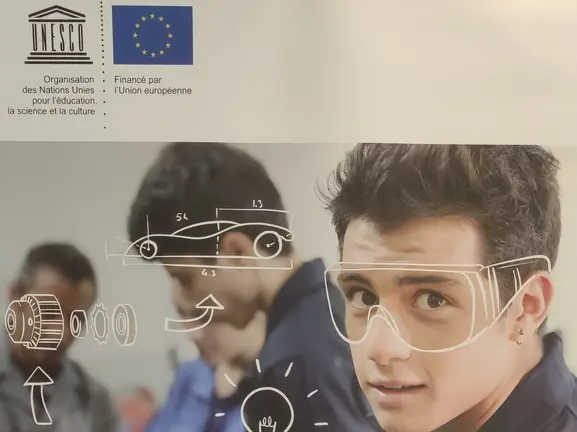Imagine that you are a medical transcriptionist, responsible for converting voice-recorded medical records into written documentation and correcting errors made by speech-to-text software. One day, your supervisor introduces an advanced voice analysis program with machine-learning capabilities. With each correction you make, the software’s accuracy improves. Over time, your job changes to include new tasks that require a different set of skills, but you have not had the opportunity to pursue on-the-job training. This is the only job you’ve ever had, and you’re not sure you can make the transition. You have limited savings and significant family responsibilities. How do you navigate this challenge? This is the experience of one worker we interviewed in the US who had to develop new skills in response to technological change. Stories like hers are becoming increasingly common. Today, intelligent technologies—such as Analytics, Big Data, Cognitive Artificial Intelligence (AI) and Robotics—are reshaping work and redefining which skills are in demand across industries and geographies. There is a huge opportunity for workers to learn new skills and for businesses to create more value. In fact, by 2022, AI alone could increase revenues by 38 percent and employment by 10 percent.
1 However, a skills gap makes capitalizing on this opportunity challenging. Workers will need technical and digital skills, complemented by unique human skills, such as empathy, communication and problem solving, to thrive in the digital economy.
2 Yet 60 percent of employers think that less than 25 percent of their workforce is ready to work with new technologies and machines.
3 This report focuses on workers facing a double disadvantage—a higher risk of technological disruption from automation and fewer resources to embrace new career pathways. How can we support these workers as they make this transition?
At Accenture, they are dedicated to creating “new skilling” pathways for an inclusive future of work—a future in which all workers have the motivation, means and opportunity to thrive in the digital economy. To this end, we are collaborating across Corporate Citizenship, Human Resources, our Talent & Organization practice, and our Innovation Architecture to close current knowledge and action gaps in communities around the world. To achieve our vision, we used a worker-centric approach, blending data and design to create a practical blueprint for an inclusive future of work. Through this process, we found that a change in mindset is fundamental to making a successful career transition. Resources such as time, funding and training courses are not enough. Workers also need to understand their options and have the confidence to act. This requires resilience and the ability to let go of an old professional identity and embrace a new one.
DOWNLOAD THE FULL REPORT HERE https://www.accenture.com/_acnmedia/PDF-90/Accenture-Inclusive-Future-Of-Work-Full-Report.pdf#zoom=50






